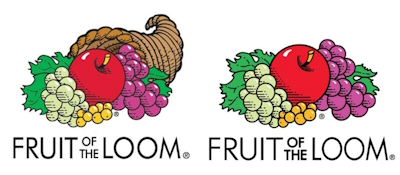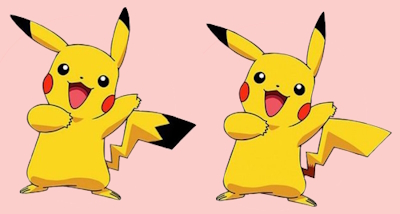INTRODUCTION
The Mandela Effect is a fascinating phenomenon that has captured the
attention of people across the globe. It refers to the strange
occurrence where large groups of individuals remember something
differently than how it is documented in reality. Named after Nelson
Mandela, this cognitive anomaly raises questions about the nature of
memory, perception, and even the structure of reality itself. Could the
Mandela Effect be evidence of parallel universes, glitches in the
fabric of existence, or simply a collective misremembering? The Quantum
Universe explanation posits that the Mandela Effect might not be a mere
coincidence but a reflection of quantum-level interactions between
alternate dimensions, leading to overlapping realities.
The Quantum Universe theory suggests that the Mandela Effect occurs
because of interactions between parallel timelines or alternate
dimensions. In the framework of quantum mechanics, particles can exist
in multiple states simultaneously, a concept known as superposition.
Similarly, the human experience of reality may be shaped by overlapping
universes where historical events or cultural details diverge slightly.
When these universes intersect or overlap, the memories from one
timeline might bleed into another, creating discrepancies in collective
recollection.
This theory aligns with the
multiverse hypothesis, which proposes that countless alternate
realities exist alongside our own, each with subtle or dramatic
variations. If our consciousness can unconsciously interact with these
alternate realities, the Mandela Effect could be the residue of such
quantum entanglements.
SOME EXAMPLES:
NELSON MANDELA'S DEATH
Many people firmly believe that Nelson Mandela, the renowned human
rights activist, died in prison during the 1980s. This memory contrasts
with documented history, as Mandela passed away in 2013 as a free man.
This disconnect in collective memory inspired the name for the
phenomenon.
DARTH VADER'S FAMOUS LINE
In The Empire Strikes Back, Darth Vader reveals to Luke Skywalker his
true parentage. Contrary to popular memory, he does not say, "Luke, I
am your father." The actual line is, "No, I am your father."
MR. MONOPOLY'S MONOCLE

Rich Uncle Pennybags, the mascot of Monopoly, is often depicted in
memory with a monocle. However, he has never worn one, challenging the
visual recollection of countless fans.
JIFFY PEANUT BUTTER
Many people recall a peanut butter brand called "Jiffy," but no such
product has ever existed. This confusion likely arises from the
blending of the Jif and Skippy brands.
"HELLO, CLARICE" IN THE SILENCE OF THE LAMBS
Hannibal Lecter's chilling line, "Hello, Clarice," has become iconic,
yet he never says this in the movie. Instead, he greets FBI agent
Clarice Starling with a simple, "Good morning."
FRUIT OF THE LOOM'S CORNUCOPIA

Some people distinctly remember a cornucopia of fruit on the Fruit of
the Loom logo. In reality, the logo has always featured a simple pile
of fruit without a basket.
MONA LISA'S EXPRESSION
Leonardo da Vinci's Mona Lisa is renowned for her enigmatic expression.
While she wears a subtle smirk, others are convinced they recall a more
distinct frown.
ED MCMAHON AND PUBLISHERS CLEARING HOUSE
Ed McMahon is often remembered as delivering oversized checks and
balloons to winners of the Publishers Clearing House Sweepstakes.
However, he was never associated with this tradition.
THE BERENSTAIN BEARS
The beloved children's book series is officially titled The Berenstain
Bears, yet many readers recall it as The Berenstein Bears.
C-3PO'S SILVER LEG
The iconic Star Wars droid C-3PO is remembered as entirely gold.
However, in the original trilogy, his right leg is silver below the
knee.
RISKY BUSINESS SUNGLASSES
The famous scene from Risky Business shows Tom Cruise dancing in a
dress shirt and underwear. Contrary to popular belief, he is not
wearing sunglasses during this scene.
SINBAD'S GENIE MOVIE
A widely held belief persists that Sinbad starred in a 1990s film
titled Shazaam as a genie. However, no such movie exists.
In my own life, I distinctly remember my great-grandmother working at a
grocery store chain called "Krogers" or "Kroger's." Yet, the company
insists its name has always been simply "Kroger" without the possessive
"S." This small but significant detail feels like another thread in the
vast tapestry of the Mandela Effect.
The Mandela Effect
challenges our understanding of reality and opens the door to
intriguing possibilities about the universe. Whether a quirk of human
memory or evidence of quantum entanglement, it remains a
thought-provoking enigma worth exploring.
|
| |
(Here are more examples of the Mandela Effect that you may find intriguing:)
THE CURIOUS CASE OF PIKACHU'S TAIL

Many Pokémon fans remember Pikachu, the franchise's mascot, having a
black-tipped tail. However, Pikachu's tail has always been solid
yellow, with only its ears having black tips.
"WE ARE THE CHAMPIONS" ENDING
In Queen's iconic song "We Are the Champions," many people recall the
song ending with the lyrics, "of the world!" However, the studio
version ends abruptly without that phrase. The misremembered version
might be from live performances.
KITKAT'S HYPHEN
Some people recall the KitKat logo including a hyphen between "Kit" and
"Kat," like "Kit-Kat." The actual logo has never had a hyphen.
LOONEY TUNES VS. LOONEY TOONS

Fans of Bugs Bunny and friends often think the show was spelled Looney
Toons, which seems logical since it features cartoons. However, the
correct spelling is Looney Tunes.
FEBREZE SPELLING
The air freshener brand Febreze is often remembered as "Febreeze,"
reflecting the way people associate the product with "breeze." The
actual spelling uses only one "e."
"MIRROR, MIRROR" ON THE WALL
In Disney's Snow White and the Seven Dwarfs, the Evil Queen is often
quoted saying, "Mirror, mirror, on the wall." However, the actual line
is, "Magic mirror on the wall."
OSCAR MAYER VS. OSCAR MEYER
The famous hot dog and lunch meat brand is often misremembered as
"Oscar Meyer." The correct spelling is "Oscar Mayer," which reflects
the brand's historical roots.
THE FLINTSTONES VS. THE FLINSTONES
Many people mistakenly refer to the beloved prehistoric family as "The
Flinstones," omitting the "t." The correct spelling is "The
Flintstones."
CHEEZ-IT VS. CHEEZ-ITS
The popular snack is often referred to as "Cheez-Its," even though the actual branding is singular: "Cheez-It."
SEX AND THE CITY VS. SEX IN THE CITY
The HBO series is officially titled Sex and the City, but many fans misremember it as Sex in the City.
THE MONOPOLY JAIL CHARACTER
The
Monopoly board game features a character in jail on the "Just Visiting"
and "In Jail" spaces. Some remember this as the same character as Rich
Uncle Pennybags (Mr. Monopoly), but it's actually a separate character
named "Jake the Jailbird."
MORPHEUS'S LINE IN THE MATRIX
In The Matrix, people often remember Morpheus saying, "What if I told
you everything you know is a lie?" This line never appears in the movie
but is commonly associated with its themes.
TIANANMEN SQUARE TANK MAN
Some individuals recall the infamous Tiananmen Square "Tank Man" being
run over by the tanks, while in reality, he was not harmed in the
widely circulated footage.
"SALLY FIELD'S OSCAR SPEECH"
Sally Field is often remembered as saying, "You like me! You really
like me!" during her Oscar acceptance speech. In reality, her words
were, "You like me. Right now, you like me."
As
we've seen throughout this exploration, our memories can sometimes play
tricks on us, creating a fascinating blend of nostalgia, confusion, and
wonder. Whether it's misremembered movie lines, brand names that feel
off, or events we could swear happened differently, these examples
challenge the reliability of our perceptions and invite us to question
the nature of reality itself.
The Quantum Universe
theory suggests that these discrepancies may not be mere quirks of
memory but glimpses into the complex, multidimensional nature of
existence. If alternate realities do exist, perhaps our consciousness
occasionally taps into these parallel timelines, blurring the
boundaries of what we believe to be true.
Yet, even
if the Mandela Effect is nothing more than a product of collective
misremembering, it speaks volumes about the power of shared human
experience. It shows us how easily our minds can be influenced by
context, repetition, and cultural narratives - and how deeply connected
we are through the stories we tell and believe.
So,
the next time you find yourself absolutely certain about something that
turns out to be wrong, don't just dismiss it as a simple mistake.
Instead, let it serve as a reminder of the mysteries that still
surround us. Because in a world where even the past isn't always set in
stone, who's to say what other marvels might be waiting to be
discovered?
|
|